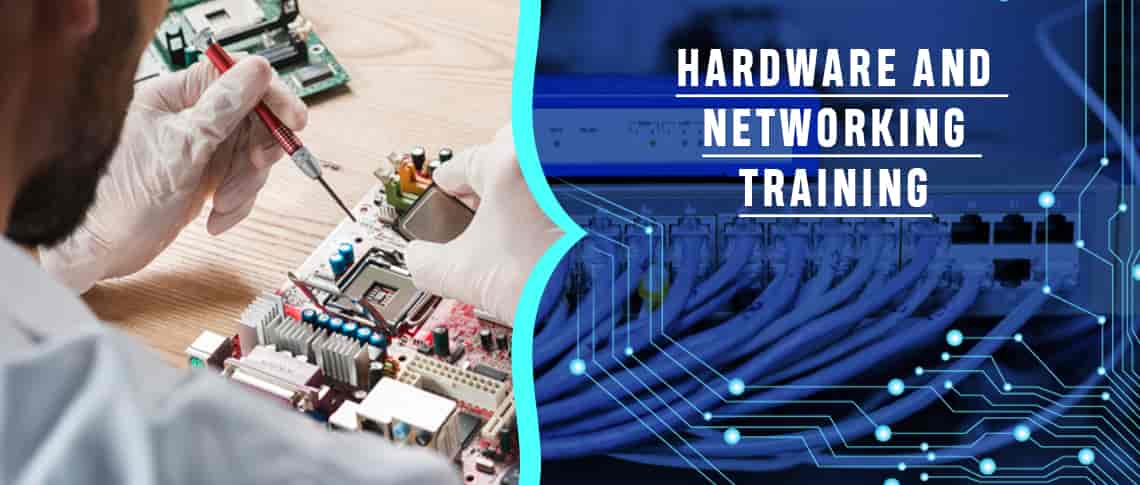Computer Hardware Networking Course

About Course
**Title: Computer Hardware Networking Course**
**Introduction:**
In today’s digital age, computer hardware and networking play a crucial role in the seamless functioning of businesses and organizations. The Computer Hardware Networking Course is designed to provide students with a comprehensive understanding of computer hardware, network infrastructure, and the skills needed to maintain and troubleshoot computer systems. This program opens doors to a range of exciting career opportunities in the IT industry.
**Course Overview:**
The Computer Hardware Networking Course covers a wide spectrum of topics that are essential for anyone interested in becoming a hardware and networking professional. Here’s an overview of what you can expect to learn during the program:
**1. Computer Hardware Fundamentals:**
– Explore the components of a computer system, including the CPU, motherboard, memory, storage devices, and peripherals.
– Learn to assemble, disassemble, and troubleshoot hardware components.
**2. Operating Systems:**
– Gain proficiency in various operating systems, such as Windows and Linux.
– Understand the installation, configuration, and maintenance of operating systems.
**3. Networking Basics:**
– Learn about computer networks, network topologies, protocols, and data communication.
– Understand the fundamentals of IP addressing and subnets.
**4. Network Devices:**
– Explore network devices like routers, switches, hubs, and firewalls.
– Configure and manage network devices for optimal performance.
**5. Network Security:**
– Gain insights into network security principles, including threats, vulnerabilities, and risk assessment.
– Learn to implement security measures to protect networks and data.
**6. Wireless Networking:**
– Understand wireless networking technologies, including Wi-Fi and Bluetooth.
– Configure and troubleshoot wireless networks.
**7. Troubleshooting and Maintenance:**
– Develop troubleshooting skills to diagnose and resolve hardware and network issues.
– Perform regular maintenance to ensure network reliability.
**8. Network Design and Administration:**
– Learn to design and administer network infrastructures, considering scalability and business needs.
– Understand the role of network administrators in managing and optimizing networks.
**9. Virtualization and Cloud Computing:**
– Explore virtualization technologies and cloud computing services.
– Understand their role in modern IT environments.
**10. Project Work:**
– Apply your knowledge and skills to practical projects and assignments.
– Gain hands-on experience in setting up and maintaining networks.
**Career Opportunities:**
Upon completing the Computer Hardware Networking Course, you’ll be well-prepared for various career opportunities, including:
– Network Administrator
– Systems Administrator
– Network Technician
– Help Desk Support Specialist
– IT Support Engineer
– Security Analyst
– Hardware Technician
**Conclusion:**
The Computer Hardware Networking Course is your gateway to a dynamic and ever-evolving field in the IT industry. Whether you are seeking to launch your career, upgrade your skills, or transition into network management, this course provides a solid foundation in computer hardware and networking essentials. Enroll today and embark on a journey to become a proficient computer hardware and networking professional, ready to meet the demands of the digital era. Your pathway to a rewarding IT career starts here.
Student Ratings & Reviews
